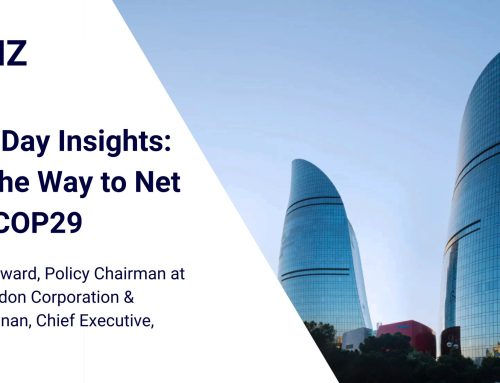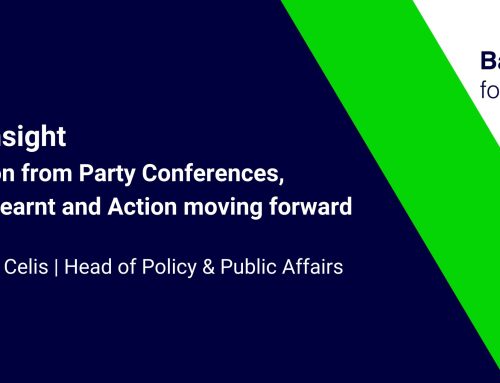20/09/2023
The G20 Summit was held in New Delhi, India, from 9-10 September 2023. The theme for this conference was “One Earth One Family One Future.” Among other things, the meeting focused on a critical aspect concerning climate mitigation objectives: climate finance. The Summit’s concluding declaration emphasized the importance of ensuring financial resources are accessible to developing countries that are grappling with the dual challenges of advancing their developmental goals while addressing climate-related issues. As part of the declaration, the leaders adopted a “green development pact for a sustainable future” to speed up measures aimed at addressing environmental and climate change challenges.
Climate change remains a priority but there’s more to be done
There was a clear acknowledgement of the consequences of climate change and the urgency to speed up to address it. Leaders emphasized the necessity of restraining global warming to 1.5°C by reducing greenhouse gas emissions by 43% by 2030 compared to the levels observed in 2019.
For the first time, leaders reached an agreement to triple the global capacity for renewable energy by 2030, shifting the discourse on climate finance from billions to trillions of dollars to meet these objectives. They highlighted the necessity of raising approximately USD 5.8-5.9 trillion from various funding sources in the period before 2030, which is essential for developing countries to carry out their nationally determined contributions (NDCs), representing their climate action plans. However, this expansion will be achieved through existing targets and policies.
Furthermore, they emphasized the requirement for USD 4 trillion annually in clean energy technologies by 2030, aiming to achieve net-zero emissions by 2050. This represents a critical objective aimed at safeguarding the planet from severe consequences of climate change, including extreme weather events, loss of biodiversity, and desertification. This ambitious financial target establishes the foundation for discussions at the 28th session of the UN Climate Conference (COP28) in Dubai, UAE, where participating nations will collaboratively explore the next stages of climate actions, guided by the global assessment of climate initiatives.
Additionally, they indicated the importance of gradually reducing the use of coal power, emphasizing a “phase-down” approach rather than a complete “phase-out.” Nevertheless, leaders refrained from establishing specific objectives or presenting detailed plans for achieving these goals. Furthermore, the language employed regarding coal remained consistent with previous statements, suggesting that there may not be a substantial shift in this regard at the upcoming COP28 Summit.
The UK’s position
The primary highlight concerning the United Kingdom’s participation in the G20 summit was the commitment made by Prime Minister Rishi Sunak to provide $2 billion to the UN-backed Green Climate Fund, a global initiative dedicated to addressing climate change. This pledge was made to solidify the UK’s position as a global leader in the fight against climate change. This investment represents the most substantial individual financial commitment from the UK towards international climate change assistance.
On a different note, Sunak said that achieving net zero emissions should not rely on stringent policies that burden British consumers, referring to them as “hair shirt” measures. He emphasized that this approach does not align with his vision of the right path for the UK to reach net zero emissions.
Within the Conservative party, there is growing disagreement on climate policies, particularly following the Uxbridge byelection, as members from the party’s more progressive wing advocate for maintaining commitments to net zero emissions. With the party conference approaching in a few weeks, the direction of the Conservative party’s climate policies will be closely watched. Nevertheless, Sunak confirmed his attendance at COP28 in Dubai later this year, suggesting a continued effort to strengthen and prioritize the UK’s leadership in addressing climate change. This confirmation gained significant attention, especially in light of his absence from the United Nations General Assembly starting on September 19th.
What happens next
The most recent G20 summit placed greater importance on the role of international financial institutions. These institutions encompass a range of entities such as the World Bank, the Inter-American Development Bank, the Asian Development Bank, the African Development Bank, and the European Bank for Reconstruction and Development.
While political will and investment are needed from the Government, achieving the substantial funding needed will also require significant involvement from the private sector, including both equity investments and borrowing.
Commercial banks and financial markets will play a crucial role in channelling such substantial financial resources.
Contact
Elena Pérez Celis,
Head of Policy & Public Affairs
E: elena.perezcelis@bankersfornetzero.co.uk
T: 07522124532



